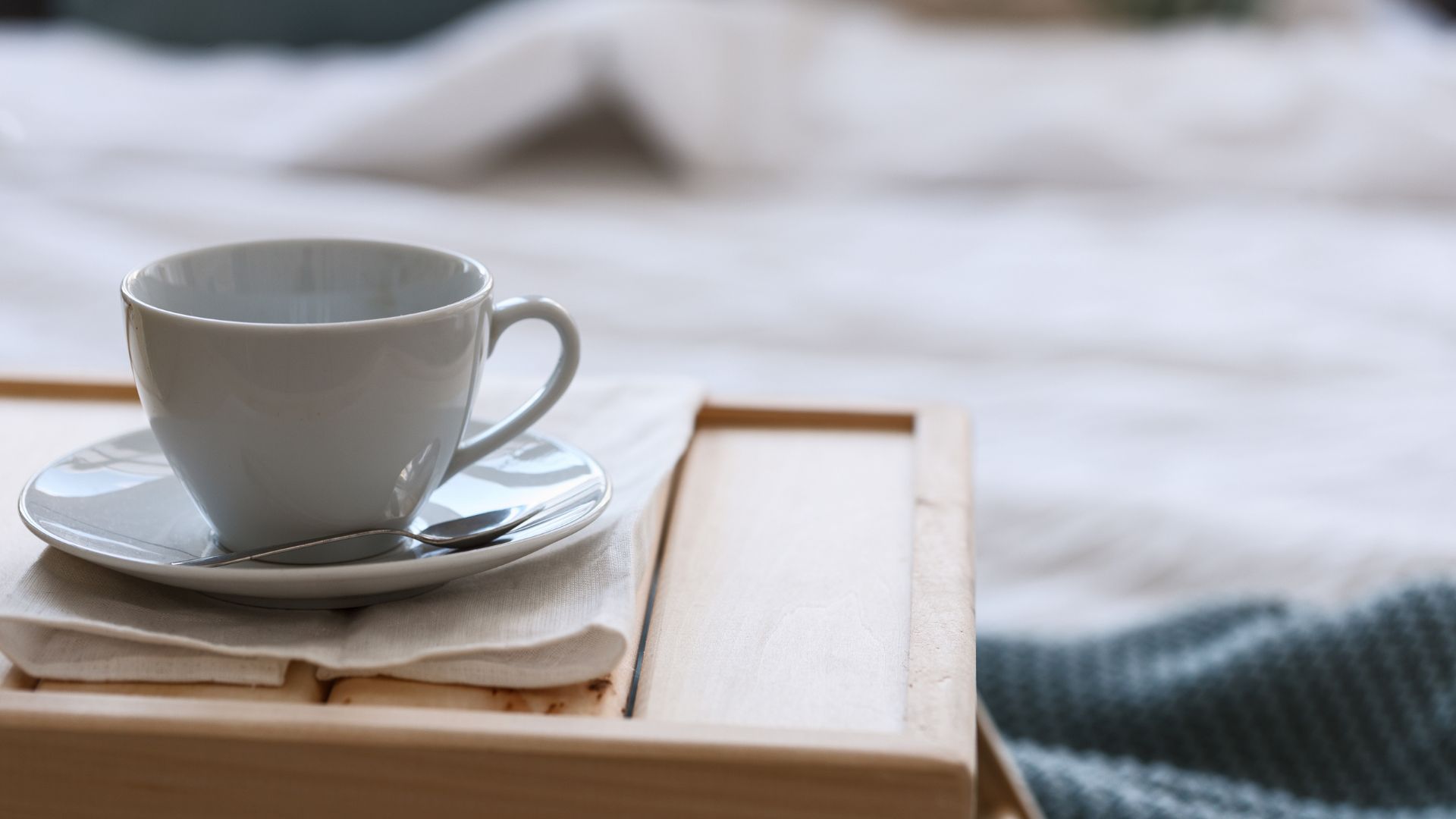
Ever heard of a nappuccino? Up until last week, neither had I, but in the last seven days, it's all over my socials. So, what is a nappuccino? Why do Olympians integrate them into their training? How can you maximise the benefits of a nappuccino?
The term 'nappuccino' is relatively new to the coffee scene, but it's already integrated into the routines of Olympians and professional athletes under the care of Dr Cheri Mah, sleep scientist and Professor at the Stanford Sleep Medicine Centre.
Dr Mah has tweaked some of the essentials for how to nap (get your coffee machines ready). She recommends drinking a freshly brewed coffee before taking a 15-minute snooze. It sounds contradictory, but studies show that you'll wake up feeling more energized and alert. Here are all the details on how to achieve the expert-approved nappuccino.
What is a nappuccino?
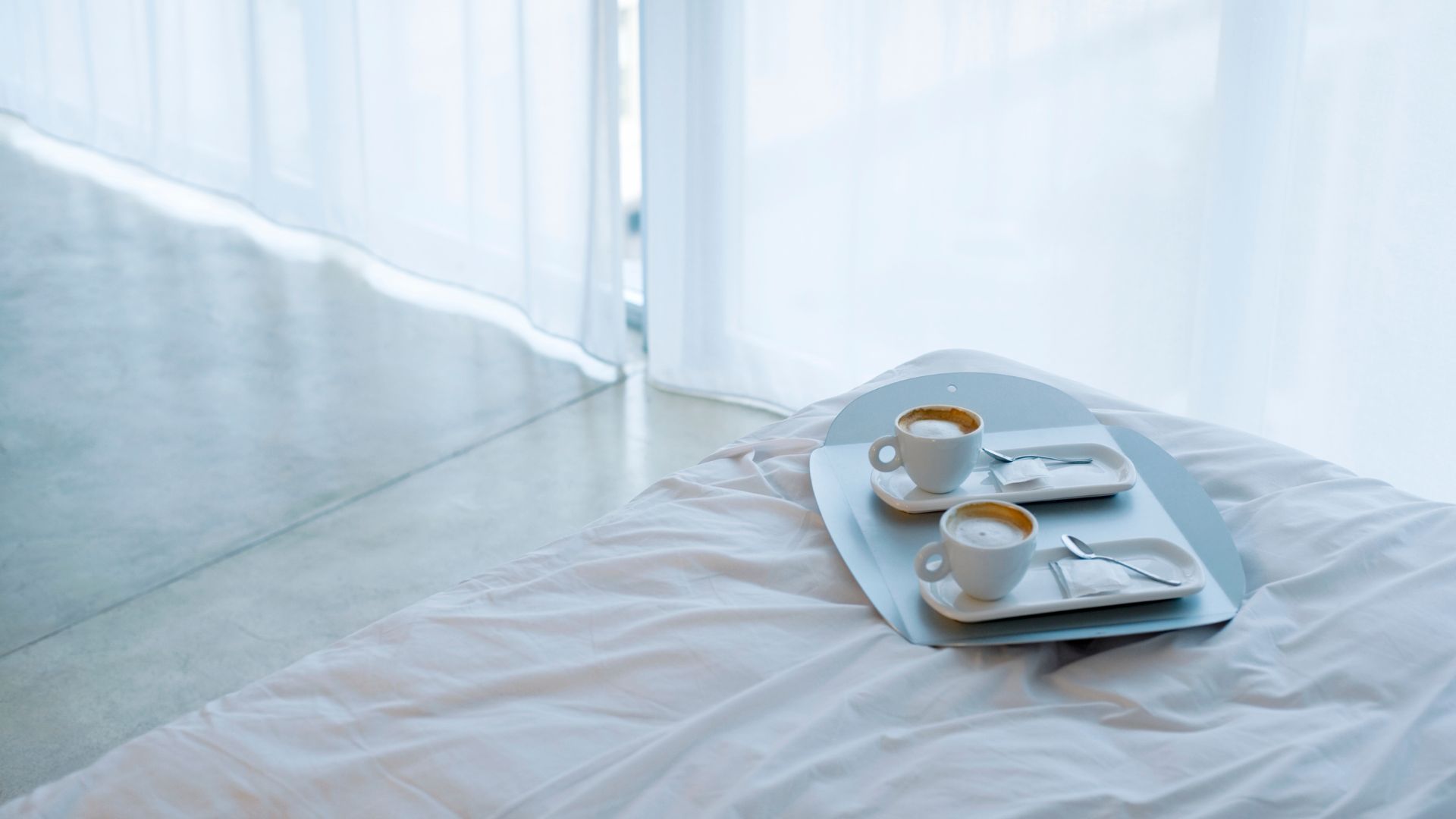
If you have a slump at the end of the morning or in the middle of the afternoon and you're really struggling to focus, chances are, you'll go for a cup of coffee to wake you up, or a quick snooze for a little boost. Whilst both of these are smart ways to stay alert, there is another, hybrid option on the scene.
Dr Cheri Mah, sleep scientist and Professor at the Stanford Sleep Medicine Centre, in a recent interview explained that a nappuccino can be "a useful tool for getting a temporary boost in performance. You go and make your favourite caffeinated beverage, and the caffeine will start to kick in about 15 minutes after you drink it. So, as soon as you've had your drink, take a 20-30 minute nap."
"If you're able to fall asleep within that 5-10 minute window while the caffeine will start to come on board. When you wake up after 20 minutes - boom - the caffeine will have kicked in and the power nap will have kicked in." You get double the energy.
It's a technique that Dr Mah has been using in her work with elite athletes and Olympians as she trains them in how to get the edge on their opponents. Dr Mah explains that the combination of the caffeine and the nap has research supporting its ability to improve alertness and performance for a couple of hours, especially compared to just a coffee or just a nap on its own.
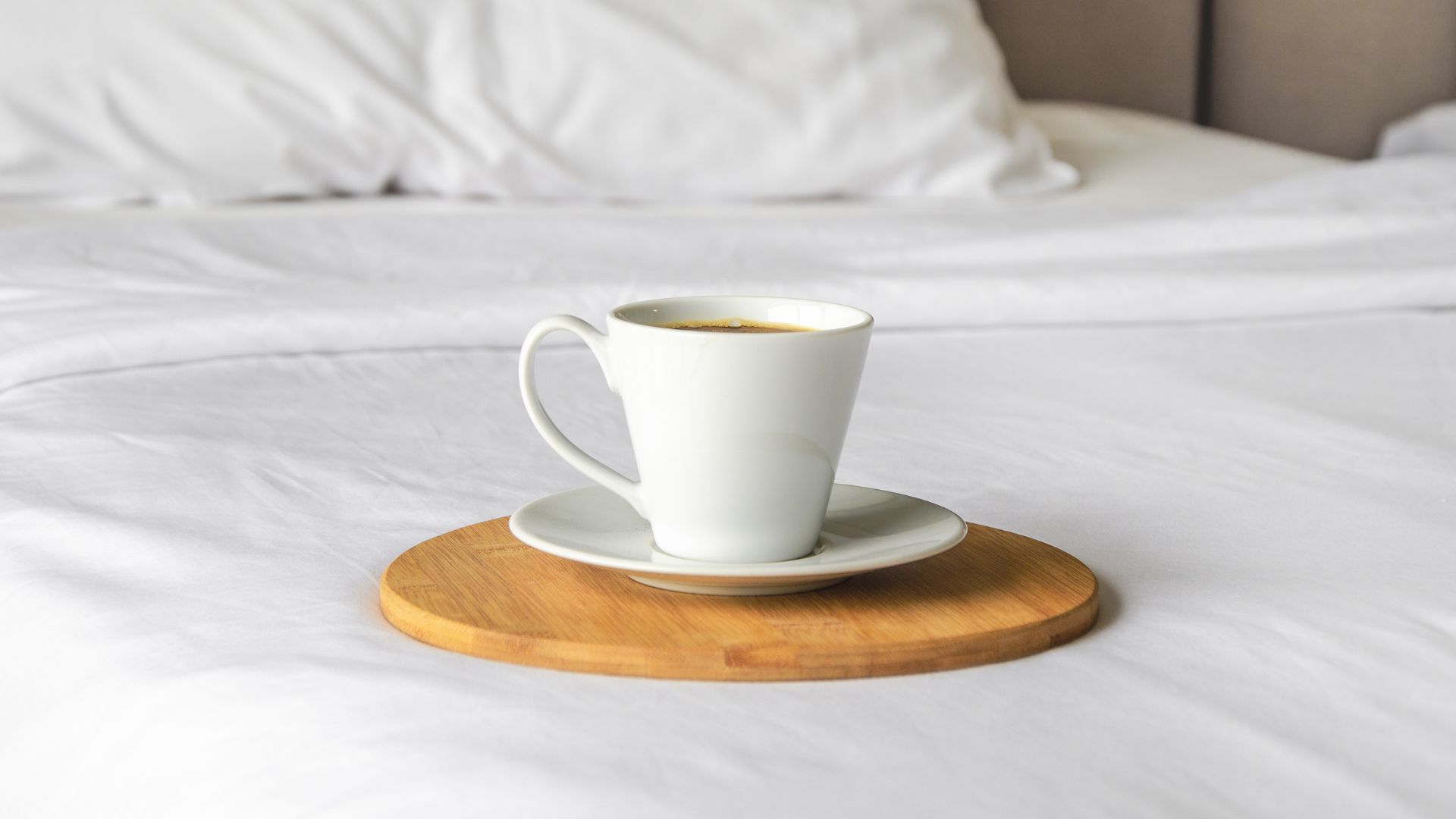
"The caveat is that you do need to fall asleep within about ten minutes," says Dr Mah "otherwise the caffeine will come onboard and keep you up. However, if you do this in the late morning or the early afternoon when you normally have a slump it can be an effective tool for a boost in alertness."
Nappuccino essentials
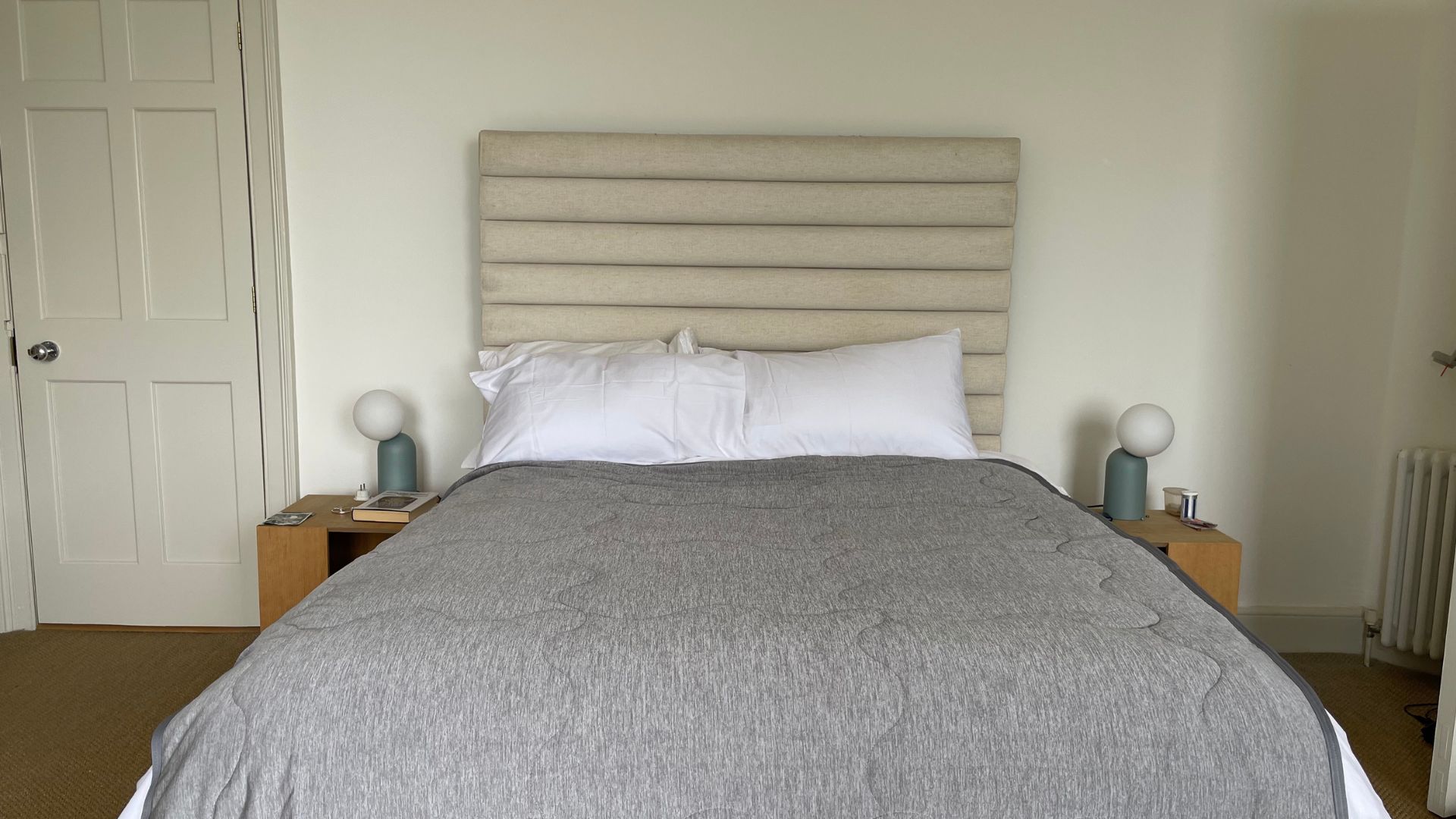
You'll already have all the ingredients that you need for a nappuccino at home, but if you feel like investing in yourself, I've been partaking in the odd nappuccino and have discovered that a few things really help.
One of the most important aspects of the whole nappuccino experience for me is the coffee. I've gone into detail on my coffee essentials further down, but it's also important that you're napping in the optimal space for sleep. That means it should be as quiet, cool, dark, and comfortable as possible. These three essentials will help you to attain that:
Piglet In Bed teamed up with the British heritage icons, Morris & Co. They've created three linen eye masks with different prints
and the Enest Middlemore is my favourite for its whimsical design. Pop this on to keep any light from stopping you sleeping.
I'm currently testing this cooling blanket, because it's designed to help ease night sweats and hot flushes. It's light, soft, soothing, and comfortable. It's a lovely, light layer to tuck yourself under for a quick nappuccino.
You'll probably want to make your coffee in a cup that comes with a lid and this is the one that I'd recommend. It's stylish, crafted from upcycled coffee husks, and the grooves mean that your hands won't get too hot holding it.
The coffee part of a nappuccino
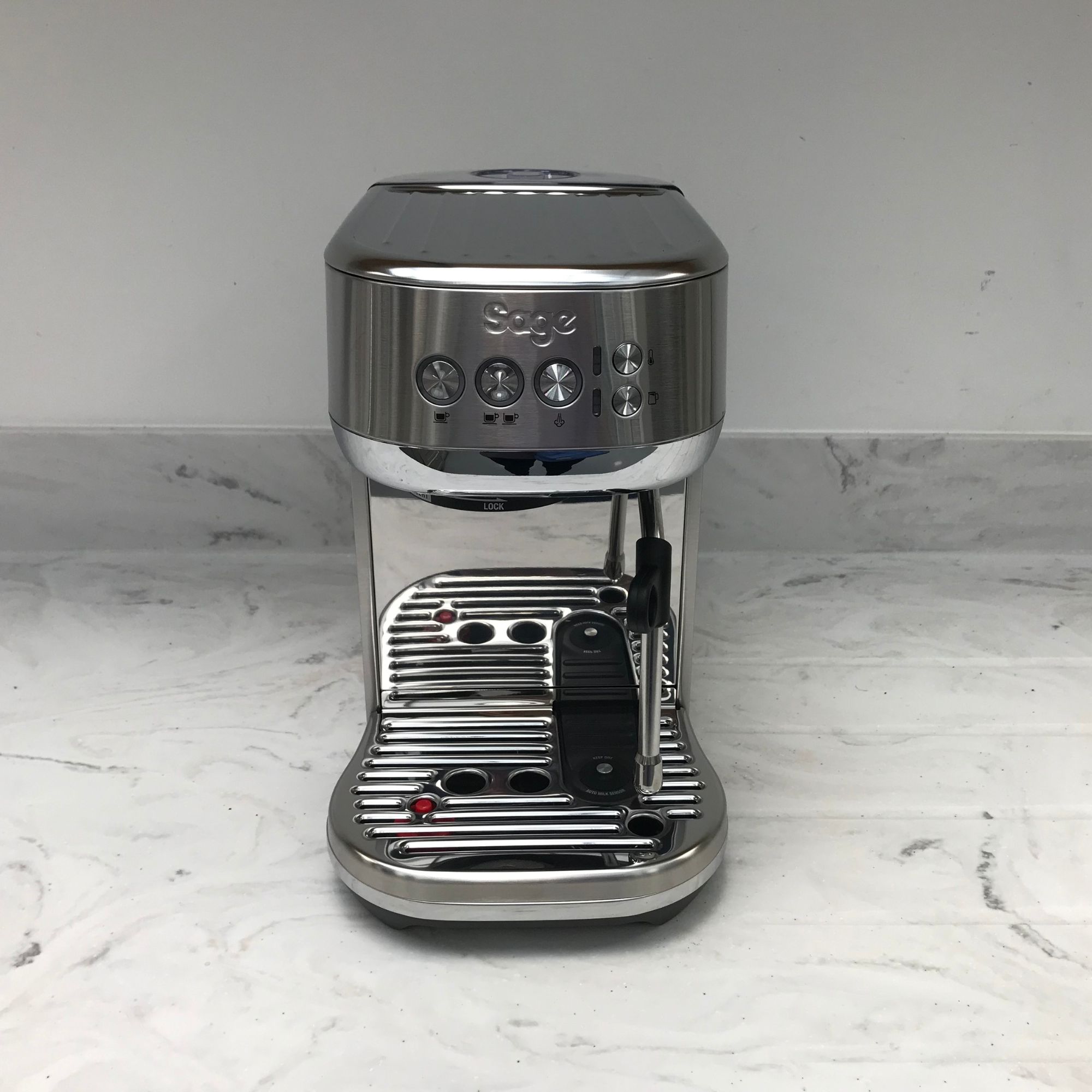
Dr Mah recommends drinking your favourite caffeinated beverage for your nappuccino, so the sky is your limit. A small espresso shot is an easy way to get a quick hit of caffeine, but you might prefer to sip an iced latte, or make a flat white with some soothing, warming milk.
I trained as a barista nearly 8 years ago, so my coffee advice would be that you make whichever drink you choose using freshly ground coffee, whether that's from a coffee grinder or your local cafe. You also want a good coffee machine, because if you're stressed about how to make your coffee, you'll only find it harder to go to bed. Here are my three essentials for any kitchen coffee station:
This slim and svelte coffee machine covers all the basics. It'll extract a delicious coffee and texture milk like models twice the size (and price), but you'll need a separate grinder.
This surprisingly affordable coffee grinder is the one that has won approval, even from my barista friends. It's simple and easy to use, but can get technical when and if you need it to.
When I trained as a barista, these were the beans that we used. They're all organic, ethically sourced, and super delicious. I don't go organic for everything, but it really makes a flavour difference with coffee.
FAQs
Do naps work? Even without the coffee
There are plenty of people who are life's nappers. I'm personally more of a caffeinator, but I was interested to find out what Dr Mah thought of naps, especially with all the research around circadian rhthyms and sleep cycles. When the question 'do naps work?' was put to Dr Mah, she had a quick answer.
If you're one of life's nappers, you'll have heard conflicting advice about whether they're an effective energy boost or whether they're hindering you from getting good sleep at night. Dr Mah says "I think naps are a great strategy for feeling more alert when you don't get efficient sleep at night," but she has a few tips on how to make sure naps work for you.
"I cap naps at around 30 minutes, but 15 minutes is really the optimal time. It's short enough to keep you in only the lighter stages of sleep, making you feel more alert when you wake. If you take a two or three hour nap, you'll wake up and you're more sluggish or groggy."
Dr Mah explains that this is called 'sleep inertia', which comes about when your nap turns into more of a mini sleep. "These long naps drop us into deep sleep and that's what will interfere with your sleep at night. That's why I cap naps at 30 minutes."
How do I make a nappuccino?
The name 'nappuccino' is a little misleading because it sounds like a whole new drink. In actual fact, all you need to do is make your favourite kind of coffee and have a 15 minute snooze. That's my idea of heaven.
Why do Olympians take nappuccinos?
Dr Mah recommends nappuccinos to some of her elite athletes and Olympians because they can help to improve performance and reaction times, especially around slumps throughout your day. Over the interview, she discussed how better sleep improved her athletes' performances by up to 12%, which makes an incredible difference to their results. For mere mortals like us, better reaction time and more alertness can make the difference between catching a falling glass and smashing it on the floor.
If you needed a scientific justification for both your mid-afternoon nap and your mid-morning coffee, Dr Mah has handed them to you on a plate. I've been testing out the odd nappuccino, because I've had a really hectic summer and, I have to say, it gives the boost that I always crave pre-nap.







